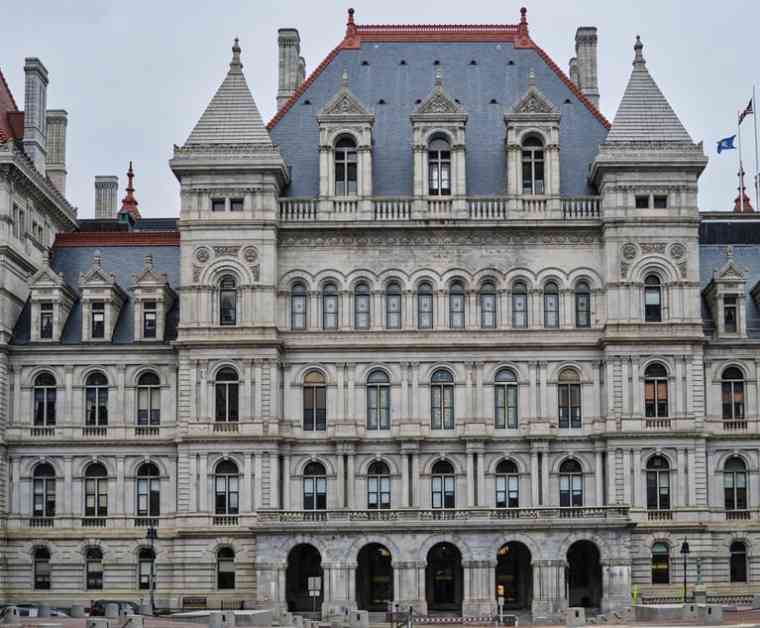New York Government Seeks Appellate Court to Lift Injunction on Lawmakers’ Earnings Cap
Lawyers representing the New York government are currently in the process of requesting an appellate court to lift a preliminary injunction on the impending $35,000 annual cap on outside income that lawmakers may earn. This cap is a part of the reform set to take effect on January 1st. The move has sparked controversy and debate among both lawmakers and citizens alike, with arguments on both sides of the issue.
The Empire State attorneys are arguing that a lower court should have dismissed a partisan lawsuit filed back in February against the state government, its ethics watchdog, and other defendants. They claim that none of the plaintiffs in the lawsuit have actually suffered any harm as a result of the measure, as it has yet to be fully implemented. This raises questions about the validity and motivations behind the lawsuit, and whether it is simply a political maneuver rather than a genuine concern for the well-being of lawmakers.
Implications of the Earnings Cap
The proposed $35,000 annual cap on outside income for lawmakers has significant implications for those serving in government positions. Proponents of the cap argue that it will help mitigate conflicts of interest and ensure that lawmakers are focused on their duties to the public rather than personal financial gain. By limiting the amount of income they can earn from external sources, the hope is that lawmakers will be less tempted to prioritize their own interests over those of their constituents.
However, opponents of the cap argue that it could deter qualified individuals from seeking public office, as the salary for many government positions may not be sufficient to support themselves and their families. This could potentially lead to a lack of diversity among lawmakers, as only those who can afford to take a pay cut in their outside income will be able to serve in government. Additionally, some critics argue that the cap may not effectively address the root causes of corruption in government and could lead to unintended consequences.
Legal Challenges and Controversy
The decision to implement the earnings cap has faced legal challenges and controversy from the start. The lawsuit filed against the state government and other defendants raises important questions about the constitutionality of the measure and whether it violates lawmakers’ rights to earn a living outside of their government positions. The outcome of this legal battle could have far-reaching implications for the future of government ethics reform in New York and beyond.
The fact that the lawsuit was filed by partisan interests also adds another layer of complexity to the issue. It raises questions about the motivations behind the challenge to the earnings cap and whether it is truly in the best interest of the public. As the legal battle continues to unfold, it will be important to closely monitor the arguments presented by both sides and the potential implications for lawmakers and the public at large.
Looking Ahead
As the New York government seeks to lift the injunction on the earnings cap for lawmakers, the debate over government ethics and accountability continues to rage on. The outcome of this legal battle could have significant implications for the future of government reform in the state and beyond. It is crucial for lawmakers, citizens, and legal experts to closely monitor the developments in this case and consider the potential consequences of implementing such a measure.
Regardless of the outcome, the controversy surrounding the earnings cap for lawmakers serves as a reminder of the importance of transparency, accountability, and ethics in government. It is essential for lawmakers to uphold high standards of conduct and ensure that they are serving the best interests of the public. Only by holding government officials accountable can we truly achieve a government that works for the people.















